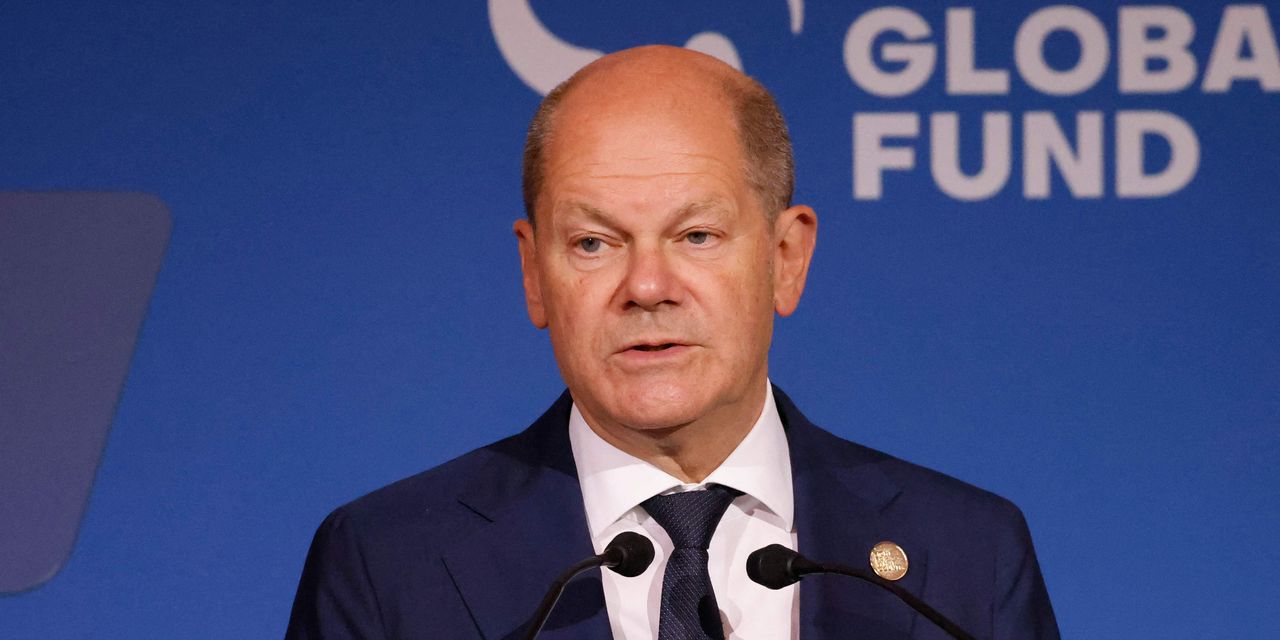German government bond yields
TMBMKDE-10Y,
hovered near 11-year highs after reports Chancellor Olaf Scholz was prepared to back European Union-wide joint debt issuance to help the bloc’s members tackle the energy crisis.
The new stance, first reported by Bloomberg, would mark a notable about turn by the leadership of Europe’s biggest economy, who have long resisted the idea of raising funds in conjunction with countries it considers more fiscally profligate.
Still, the German chancellor stressed that any funds raised and disbursed would have to be loans and not grants, according to reports.
Scholz’s switch follows criticism of Germany’s plan to spend €200 billion ($194 billion) supporting its domestic households and businesses from surging energy prices, rather than working with EU members to deliver a centrally-agreed continent-wide package of aid.
It also comes as Brussels is keen to display unity among members in response to the energy war being waged by Russian President Vladimir Putin following his invasion of Ukraine.
The 10-year German bund yield on Tuesday dipped 2.7 basis points to 2.319%. It had jumped to 2.34%, the highest since 2011, late on Monday after news of Scholz’s comments hit the wires and investors priced in the likliehood of more bund issuance.
The yield spread with equivalent duration Italian bonds
TMBMKIT-10Y,
a closely watched gauge of stress in the European government bond markets, fell on Monday below 240 basis points as investors welcomed the prospect of Rome’s paper at least partly receiving the implicit backing of Berlin’s.
